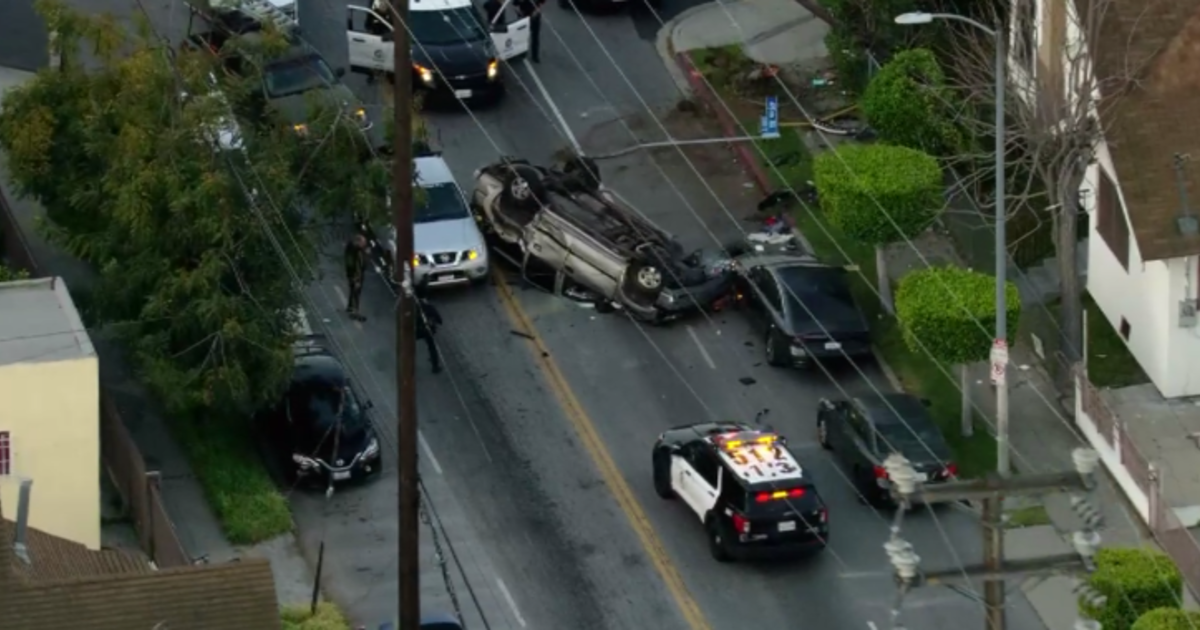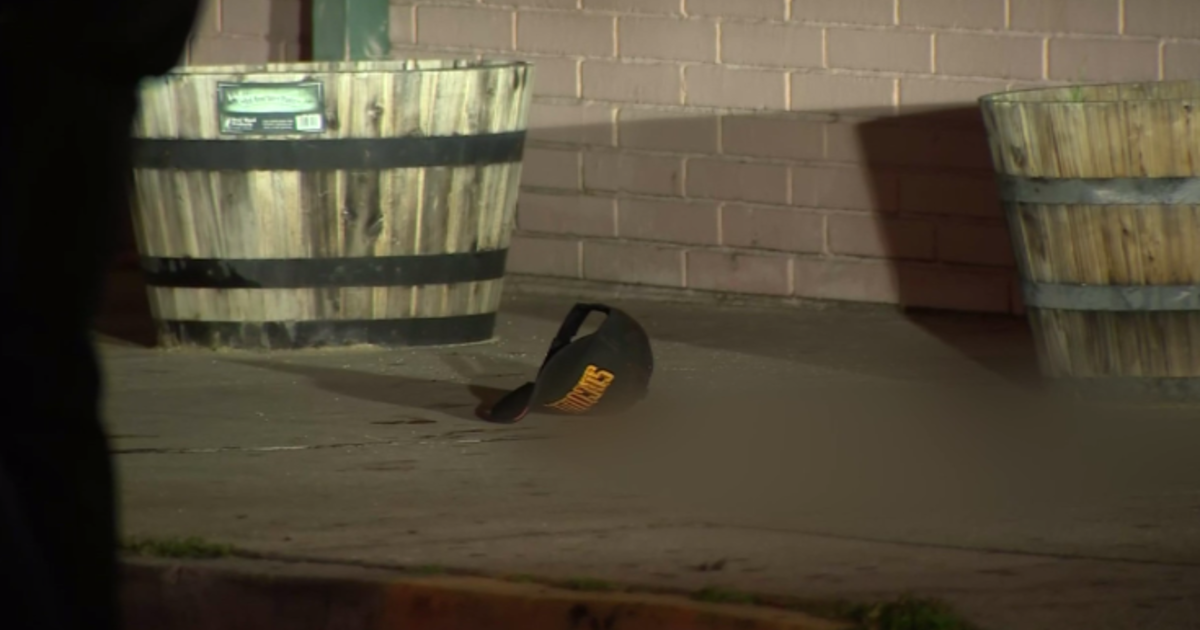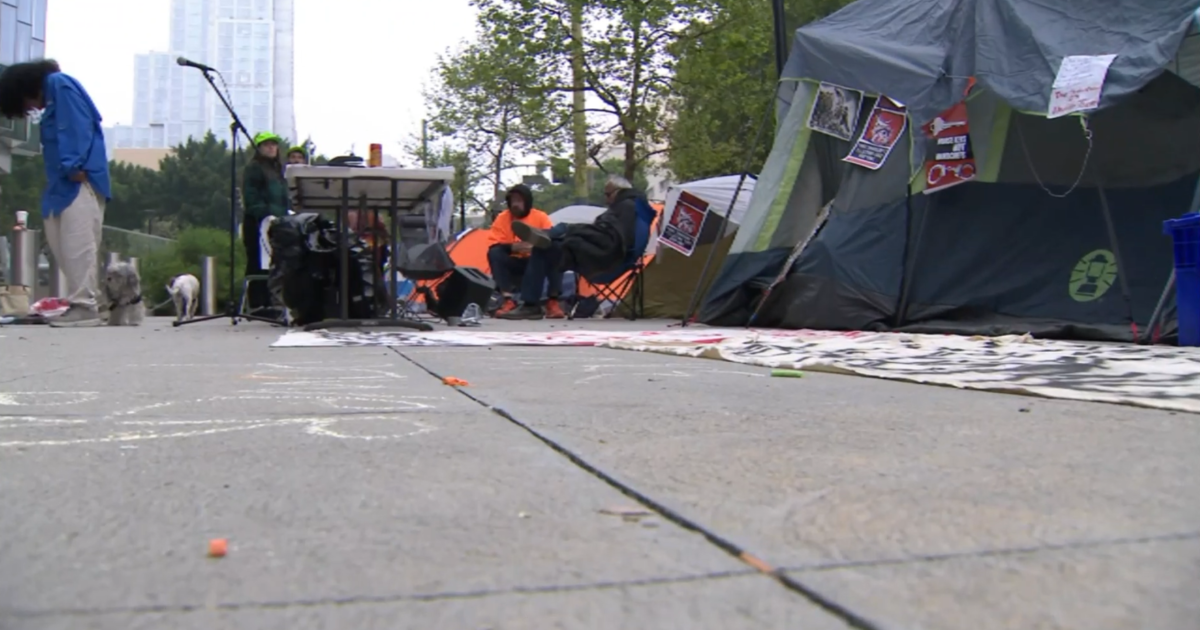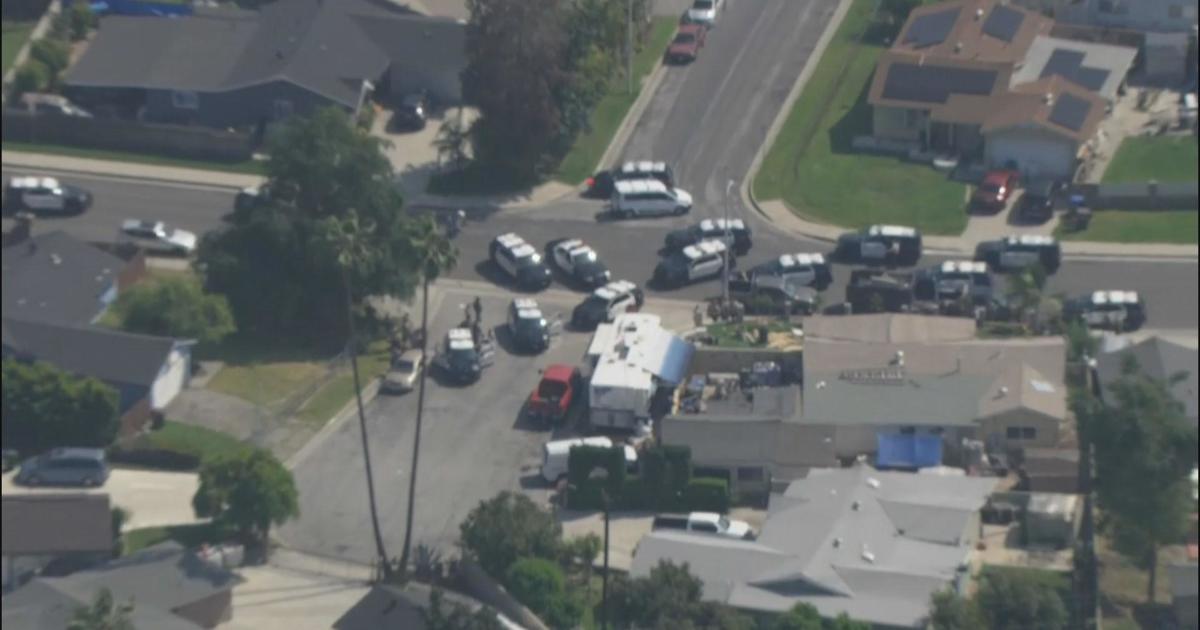Terror Suspect's Father Says He And Son Divided On Ideology, Never Met Daughter-In-Law
LOS ANGELES (CBSLA.com) — The father of shooting suspect Syed Farook is speaking to reporters.
He said that he and his son were divided on ideology and revealed one bombshell -- he never met his son's wife who also carried out the terror attack.
"All Pakistanis coming from major cities are liberal people. He was going towards conservation, his views were conservative, I'm liberal," said Syed Farook Sr.
Farook Sr. also said he was angry when he found out his son purchased a weapon.
"He said he shared the ideology of Al Baghdadi to create an Islamic state, and he was fixated on Israel," Farook Sr. said.
During an interview with an Italian media outlet, Farook Sr. explained he told his son that Israel would soon cease to exist because Russia, China and America "don't want Jews there anymore." The nations would later move the Jewish population to Ukraine.
"I told him he had to stay calm and be patient because in two years Israel will not exist anymore," Farook Sr. said during the interview. "What is the point of fighting? We have already done it and we lost. Israel is not to be fought with weapons, but with politics. But he did not listen to me. He was obsessed."
KCAL9's Jeff Nguyen spoke Sunday to Brian Levin, Director of the Center for the Study of Hate and Extremism at Cal State San Bernardino.
Levin firmly believes Syed's wife turned him on to radical ideas.
"Tashfeen Malik was the leader of this terrorist duo," Levin says.
Levin says Farook had a clean record. But that changed after the couple met online, got married in Saudi Arabia and had a second ceremony at a mosque in Riverside.
The mosque that Farook was associated with is a peaceful mosque. But the suspects lived under the radar until Wednesday's mass shooting at the Inland Regional Center.
Malik entered the United States last year on a fiancée visa which required screening that found nothing suspicious in her background.
Levin says the screening process needs to change.
"You can screen for certain things like a criminal record and travel but you can't screen someone's heart," he says.



